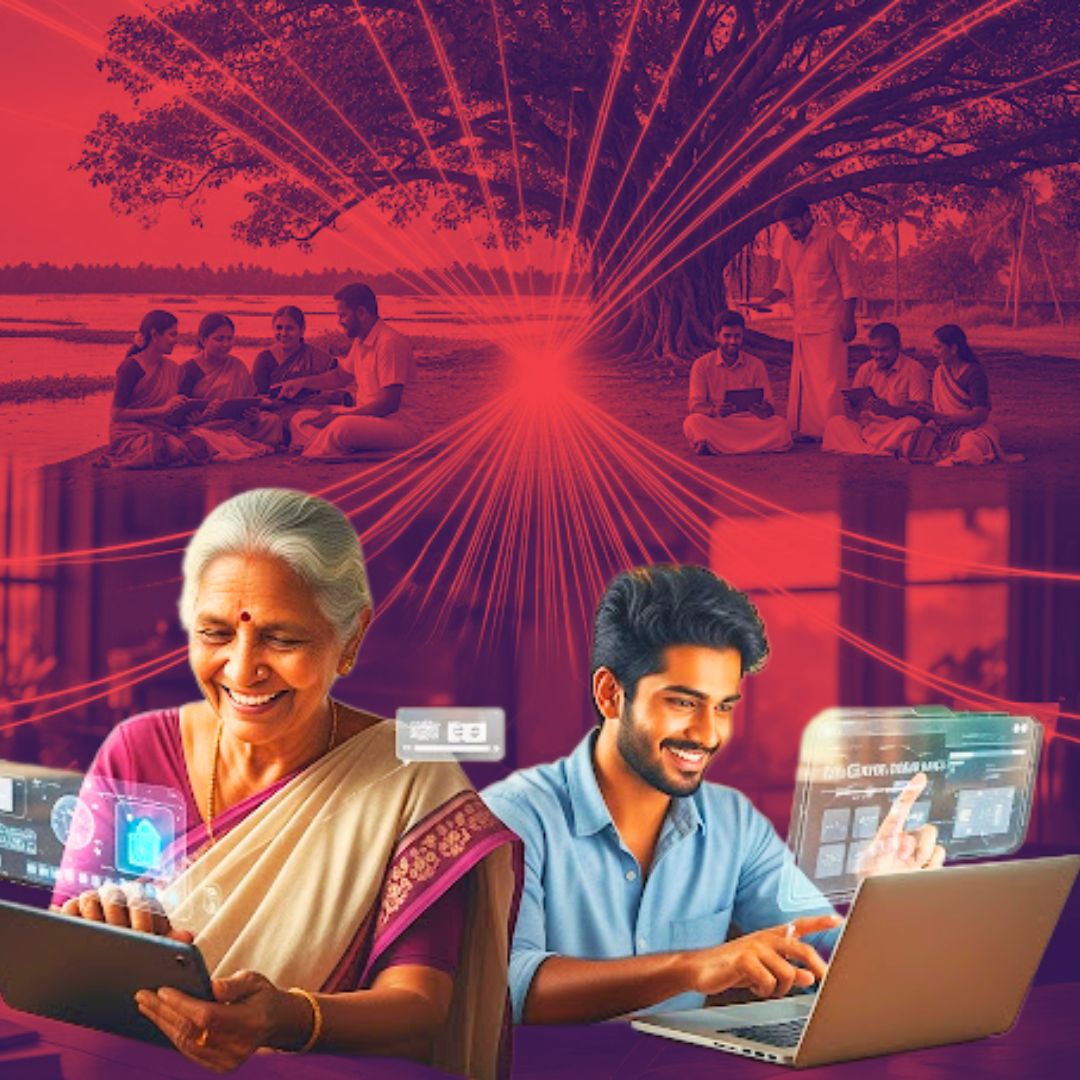Kerala is set to officially declare itself as the first fully digitally literate state in India on August 21, 2025. The ambitious ‘Digi Keralam’ campaign has successfully trained over 21 lakh people aged 14 and above across Kerala’s urban and rural landscapes, including senior citizens above 100 years old.
The initiative, driven by nearly 2.6 lakh volunteers from diverse backgrounds, equipped citizens with essential digital skills like smartphone use, online payments, social media navigation, and access to government services. The programme’s comprehensive reach highlights Kerala’s commitment to bridging the digital divide and ensuring no one is left behind in the digital era.
Digi Keralam: Revolutionary Digital Literacy in Kerala
The ‘Digi Keralam’ project stands as a milestone in India’s digital literacy efforts, covering approximately 83.45 lakh households and assessing over 1.5 crore individuals to identify beneficiaries. Nearly 21.87 lakh people successfully completed training modules certified by UNESCO, involving practical skills such as accessing the internet, using mobile apps, securing online transactions, and digitally engaging with government portals like K-SMART.
The steep inclusiveness is proven by the fact it reached thousands of elderly citizens aged 90 and above, including the remarkable 105-year-old M A Abdullah Maulavi Bafakhi, who now engages with video calls and YouTube content effortlessly. Local Self Government Minister M B Rajesh praised this transformational effort as a community triumph, crediting the dedication of volunteers and learners alike.
From Pullampara to Statewide Success: The Journey
Kerala’s journey to this historic achievement took inspiration from its pilot project in Pullampara panchayat during the COVID-19 pandemic, which became India’s first digitally literate panchayat. Recognising the critical need for digital knowledge during lockdowns, the state formalised the Digi Keralam programme in 2023, expanding it across all 1,167 local self government institutions.
Over 2.57 lakh volunteers-including students, members of the women’s cooperative network Kudumbashree, and local community leaders-played pivotal roles in imparting training through workshops, door-to-door visits, and digital camps. The training adopted internationally recognised standards with post-training assessments and multi-tiered monitoring, ensuring quality and accountability that set it apart as a replicable model for other states.
Kerala’s long-standing commitment to literacy and welfare played a vital role in the campaign’s success. The state’s earlier initiatives like the Akshaya project laid the groundwork for embracing technology, enhancing e-governance, and breaking down barriers between citizens and digital services. The Digi Keralam programme not only builds on this legacy but exemplifies Kerala’s continued mission to empower its citizens through education, inclusion, and innovation.
The Logical Indian’s Perspective
Kerala’s achievement illustrates how dedicated community action and inclusive governance can leverage technology as a force for social good. In a world increasingly shaped by digital access, Kerala shows that successful digital literacy is not just about learning skills but about creating opportunities for economic independence, social connection, and civic participation.
It also underlines the importance of thoughtful government intervention combined with vibrant grassroots participation to address inequalities.
The Logical Indian celebrates this model as a powerful example for all of India and beyond. It challenges other states to envision how digital literacy can bridge real divides-age, geography, economic status-and foster a more equal and harmonious society.
For us, Kerala stands as an inspiring beacon: when humans and technology come together with empathy and determination, no one is left behind from the promise of progress.












